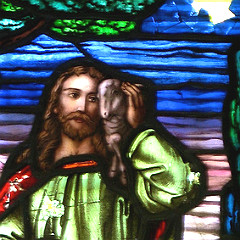I recently had an exchange in which someone mentioned leaving the church. Who hasn’t? He quit participating some time back, and he’s not alone.
There are any number of reasons people walk out and don’t return. There are those who wake up one day and decide the whole enterprise is false. But most seem to leave because the church has failed to measure up in some way. They leave because they are disillusioned.
You know the triggers: Community life is lacking. A fellow parishioner said something to slight or offend. The priest is a phony. There’s political infighting among the bishops. The hierarchy is corrupt or self-seeking. Whatever. Some of it is undoubtedly true, some of it’s not. What matters is that the person feels as if the church has let him down.
Church in the raw
It is easy to idolize the church, to expect it to operate on a plane above the world’s petty agendas and schemes. Its sweeping history, the richness of its doctrine, the wealth of its worship and pious practices all add up to an immaculate experience of divine communion. Or at least we think they should.
But they don’t. And they never have.
Just look at that sweeping history. It’s impossible to read it without a good deal of grimaces and groans. We venerate men like Athanasius of Alexandria and Maximus the Confessor, and we should. But the reality is that when we say Athanasius contra mundum (“Athanasius against the world”), we must recognize that the world was the church. He was battered and exiled by fellow Christians. Same with Maximus. Same with many, many others. How many faithful Christians in the Soviet Union, for instance, suffered under corrupt clergy?
The church is a mixed body. Jesus provides us the picture of the wheat and tares. We should not be surprised when we find tares in the field, and truthfully we should be humble enough to recognize that we might be a tare ourselves. Hubris only affects those who think they’re immune to it (click to tweet).
The virtue of disillusionment
This may sound like a kind of disillusionment of its own. It is. But as Joseph Loconte points out in his book The Searchers, disillusionment is the only way to see the world as it really is. “No one grows in wisdom by willfully clinging to falsehoods,” he says. Illusions are no good, and one that offers an immaculate mirage instead of a real — sometimes profoundly flawed — incarnational community helps no one.
Writes John Maximovitch in “The Church As the Body of Christ,”
The . . . consequences of sin, not yet driven out finally from the human race, operate not only in individual people, but through them they are manifested in the earthly activity of entire sections of the Church. Heresies, [schisms], and disputes arise constantly, tearing away part of the faithful. Misunderstandings between local churches or parts of them have troubled the Church since antiquity, and prayers for their cessation are constantly heard in the divine services.
Maximovitch gives several examples of liturgical prayers for unity and peace and the cessation of scandals and dissent before saying, “Only when Christ appears on the clouds will the tempter be trampled down, and all scandals and temptations disappear.”













